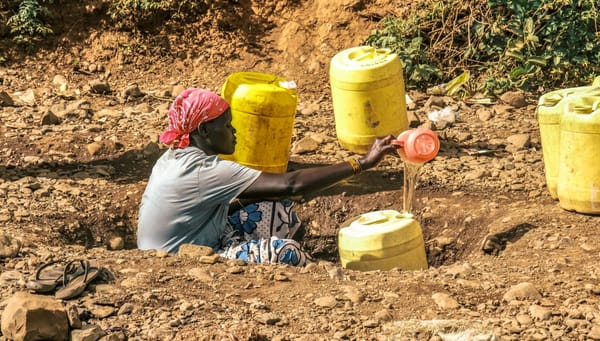The Futility of COP Processes and the Global South's Role in Radical Peaceful Change
The inadequacies of COP meetings have been laid bare by their inability to secure binding commitments or enforce mechanisms to hold nations accountable.

The annual UN Climate Change Conferences (COP) are intended to foster global collaboration to address the climate crisis, yet they have repeatedly failed to deliver meaningful results. This year’s COP29 in Baku highlighted these shortcomings. In a stark development, Argentina withdrew its delegation, reflecting a growing skepticism among some nations about the efficacy of the COP framework. Argentina’s withdrawal, under President Javier Milei’s administration, underscores deepening geopolitical divides and the increasing prioritization of economic agendas over urgent climate action.
The inadequacies of COP meetings have been laid bare by their inability to secure binding commitments or enforce mechanisms to hold nations accountable. For decades, wealthy nations have promised but failed to adequately support the Global South, which bears the brunt of climate change’s devastating effects despite contributing minimally to the problem.
Amid this deadlock, the Global South stands at a critical juncture. It is not merely a victim but can also serve as a visionary leader in reimagining climate action. Drawing from indigenous knowledge systems, decentralized solutions, and advocating for climate justice, these regions can propose radical yet peaceful pathways for addressing the climate emergency. The Baku episode emphasizes the urgency of moving beyond the bureaucratic inertia of COP processes toward a grassroots-driven global movement for ecological and social resilience.
The Futility of the COP Process
The COP framework aspires to unify global efforts in combating climate change but has proven repeatedly ineffective in achieving transformative results. Its shortcomings stem from deeply rooted structural flaws:
- Weak Commitments: Agreements reached during COP conferences are mostly non-binding, relying on voluntary national pledges. These commitments are often inadequate to meet the targets necessary to limit global warming to 1.5°C, with many nations backtracking on or delaying implementation.
- Corporate Influence: Fossil fuel lobbyists and corporations with substantial stakes in high-carbon industries have a significant presence at COP meetings. Their influence frequently dilutes ambitious climate initiatives, prioritizing profit over environmental integrity.
- Inequitable Power Dynamics: The negotiations are skewed in favor of wealthy, industrialized nations, which historically contributed the most to greenhouse gas emissions. These countries dominate decision-making processes while often failing to deliver promised financial support for the Global South to adapt to and mitigate climate impacts. This imbalance exacerbates existing global inequalities.
- Incrementalism Over Urgency: The consensus-driven approach prioritizes broad agreement over decisive action, leading to vague, compromised resolutions. This incrementalism starkly contrasts with the immediate and large-scale changes demanded by scientists to avert climate catastrophe.
While the COP framework has succeeded in raising awareness and fostering dialogue, it is increasingly clear that it cannot deliver the radical systemic change required to combat climate breakdown.
The Global South: A Victim and a Visionary
The Global South is disproportionately burdened by climate change—suffering from rising sea levels, extreme weather events, biodiversity loss, and food insecurity—despite being a minimal contributor to global emissions. This glaring injustice has fueled movements advocating for climate reparations and systemic transformation.
Yet, the Global South is more than a victim; it holds the potential to lead a radical, peaceful climate revolution through:
- Reclaiming Indigenous Knowledge: Indigenous communities in the Global South embody sustainable living, emphasizing harmony with ecosystems. Their practices, rooted in respect for nature, can inspire transformative, alternative development models that prioritize balance over exploitation.
- Pioneering Decentralized Solutions: The region is innovating localized, sustainable practices such as community-owned renewable energy projects and agroecological farming. These approaches empower communities and bypass the inefficiencies and inequities of centralized, global systems.
- Building Alliances: South-South cooperation can create a collective voice to challenge global climate governance structures. By uniting across shared struggles and solutions, the Global South can amplify marginalized perspectives and influence global policies.
- Championing Degrowth: The Global South is uniquely positioned to challenge the relentless pursuit of economic growth, proposing models that prioritize well-being, equity, and ecological balance. This approach redefines prosperity, centering humanity's future over unsustainable consumption.
By combining these visionary pathways, the Global South can chart a bold course for addressing the climate crisis—one that prioritizes justice, sustainability, and resilience.
Radical Peaceful Pathways
The Global South holds the potential to drive humanity toward a sustainable future by adopting radical yet peaceful strategies that challenge entrenched systems and prioritize justice and equity. These approaches, rooted in action and collaboration, can redefine global climate responses:
- Climate Reparations and Redistribution: The call for climate reparations is grounded in justice: wealthier nations, which have historically emitted the most greenhouse gases, must compensate vulnerable nations for climate-induced damages. These funds could support renewable energy projects, climate-resilient infrastructure, education, and health systems. Debt cancellation could free developing nations to invest in sustainability rather than servicing financial obligations imposed by exploitative global systems.
- Citizen-Led Movements: Grassroots activism is a cornerstone of change. Across the Global South, local communities are mobilizing against extractive industries, deforestation, and polluting practices. From indigenous leaders protecting rainforests to urban activists advocating for clean energy, empowering these movements amplifies their impact. This collective pressure can force governments and corporations to prioritize climate justice.
- Nonviolent Resistance: Peaceful methods like protests, divestment campaigns, and strategic legal challenges can disrupt exploitative systems. By targeting the fossil fuel industry and holding polluting corporations accountable, nonviolent resistance can shift societal norms and economic priorities. Examples include movements that successfully oppose pipelines or demand corporate transparency and divestment from unsustainable practices.
- Global Solidarity: Building alliances with progressive movements in the Global North can foster a united front for climate action. Such coalitions can share resources, expertise, and platforms, ensuring that marginalized voices influence global policies. This transnational solidarity not only strengthens advocacy but also counters narratives that marginalize the Global South's leadership role in climate solutions.
Together, these pathways form a blueprint for transformative action. By rejecting the status quo and prioritizing systemic change, the Global South can lead a peaceful revolution that safeguards the planet for future generations.
Conclusion
Humanity’s survival hinges on breaking away from ineffective systems and championing bold, equitable solutions. The Global South, as both a victim of climate injustice and a wellspring of transformative potential, holds the key to forging a sustainable future grounded in justice and resilience.
By rejecting the inertia of the COP framework and pursuing radical, peaceful pathways, the Global South can become a beacon of hope, inspiring global action and demonstrating that a livable, equitable planet is possible. The courage to embrace change starts with refusing to accept the status quo—and history reminds us that transformation often begins with the most marginalized.
Let the Global South lead the way, serving as the catalyst for a shared vision of survival, harmony, and equity for all of humanity.





